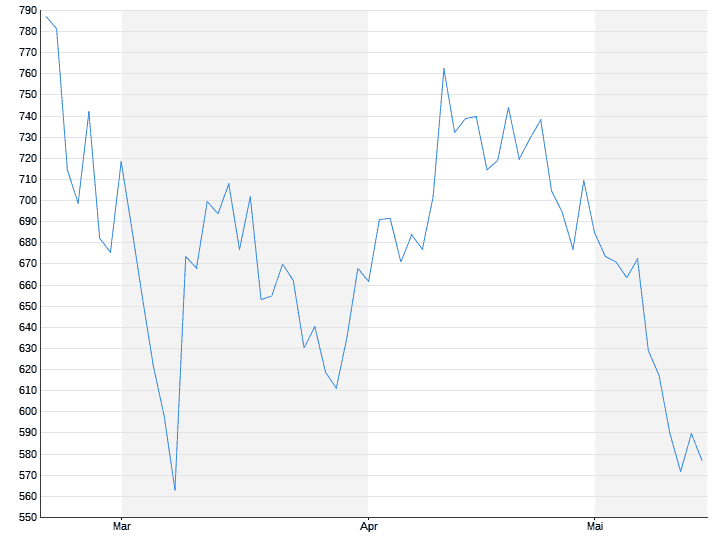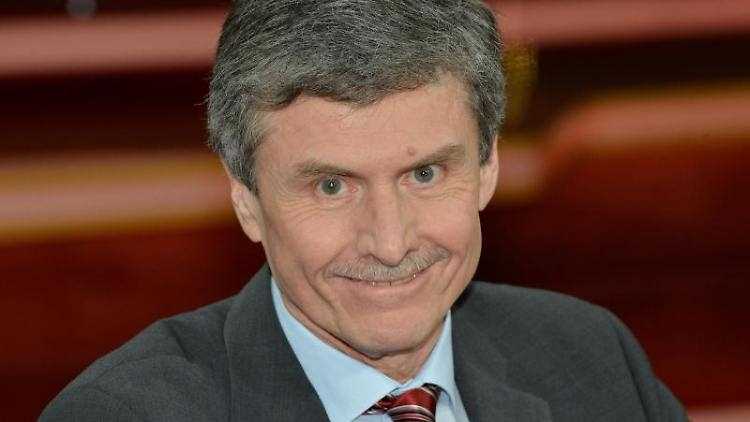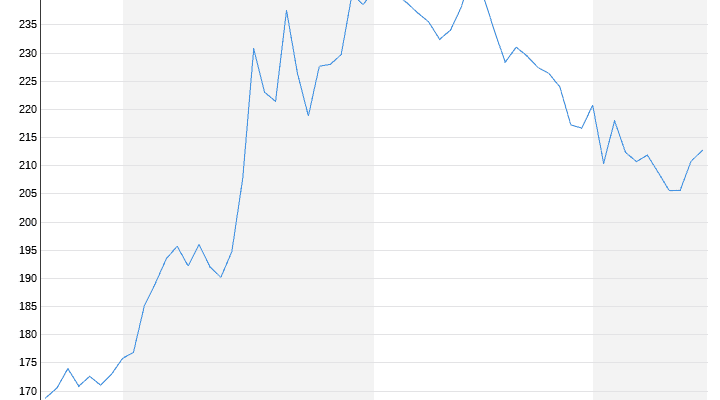Volkswagen is preparing to build another battery factory in Salzgitter together with its US battery partner Quantumscape. This time it’s about so-called solid-state batteries. “The news is a blast,” says car expert Ferdinand Dudenhöffer ntv.de. “The fact that this technology is now coming to Germany with VW is an important message.” Tesla is losing an “important innovation lead” and is becoming “boring”.
ntv.de: The Volkswagen Group and the US battery startup Quantumscape announced on Friday afternoon that a pilot plant for the production of solid-state batteries in Salzgitter want to build – it would be a second important battery project in addition to the construction of a battery factory for the Northvolt company in Salzgitter. You got that with “madness!” commented on twitter. What exactly is planned and how promising is this cooperation?
Ferdinand Dudenhöffer: A breakthrough has been achieved in the further development of the currently common lithium-ion batteries for electric cars, and that is very promising for the future. Quantumscape intends to produce solid-state battery cells in the order of 1 gigawatt in this pilot factory as early as 2023 – this corresponds to batteries for 20,000 cars with 50 kWh each. In the further course, the capacity is to be increased to 20 gigawatts, i.e. battery cells for 400,000 cars with 50 kWh battery each. Firms tried their hand at solid-state batteries a good 30 years ago, but kept giving up. If we could get this battery now for electromobility, we would have succeeded in building the miracle weapon for the e-car world.
What exactly is this miracle?
The miracle is that not only all theoretical problems of this technology have been solved. Pilot production can now also begin. Up until now, lithium ions had always settled on the solid substances that were used to replace the liquid electrolyte during charging and discharging. This formed clumps and the batteries died relatively quickly. The news is a blast in two respects: First, the cells can now be tested in the car. Second, the factory will be built in Salzgitter. Nobody had believed in the future of solid-state batteries in Germany. Everyone looked to the USA, China, Korea or Japan. The fact that this technology is now coming to Germany with VW is a very important message.
What are the advantages of solid-state batteries?
There are three to be mentioned: First, you can charge this battery cell much faster than the conventional one because the ions no longer move back and forth in the liquid, the electrolyte, but are on the other side in no time via the solid. In concrete terms, this means that in future you will be able to charge cars almost as quickly as you fill up with petrol now. Second, the solid prevents material fatigue, the service life is significantly longer – longer than that of the car itself. Third, this battery takes up significantly less space and is less weight than today’s batteries with the electrolyte. The bottom line is that this battery, which takes up less space and is lighter, also gives you significantly more energy. An electric car with a range of 1,000 kilometers will no longer be a problem. There are also cost advantages. Everything that one wishes for in the various areas in order to advance on the topic has been fulfilled.
There are also critical voices who do not believe that this can be done so quickly. Toyota actually wanted to have developed the first solid-state battery and go into series production this year. That has been postponed – to 2025.

Quantumscape has cracked the big nut. With a small cell, the company has proven that the solid that is needed works. Installing this cell in larger batteries is just a minor issue. Therefore, one should not take experts who say it is not possible too seriously. Many live in the old world, where this was not intended. The breakthrough is not that surprising. Recently there have been a lot of publications from universities that have already described this material theoretically.
There is a lot of hype surrounding battery startups. VW is working with Quantumscape on the new technology. Ford, BMW and Hyundai rely on the US startup Solid Power. Is the competition left behind or can they imitate the solid matter principle?
As with today’s lithium-ion batteries, there will be more than just one manufacturer of solid-state batteries. We’re going to go into solid-state battery cells much faster than many had thought. E-mobility is getting a big boost. This is good because the batteries in the electric car are still the point that needs significant improvement. This quantum leap is achieved with the solid-state battery. It could be the death of the fuel cell in mobile applications. Because if it works relatively quickly, trucks will also drive with it.
The Chinese company SVolt wants to build a large battery factory in Saarland. Tesla boss Elon Musk wants to build “the world’s largest battery factory” in Brandenburg. VW is already planning the second battery factory in Salzgitter. Why is Germany so attractive as a battery location? Are we just becoming a battery wonderland here?

Ferdinand Dudenhöffer has been director of the private sector Center Automotive Research in Duisburg since May 2020.
(Photo: Karlheinz Schindler / zb / dpa / archive image)
No, the technology doesn’t come from Germany. VW, for example, has only made very smart investments in the American startup Quantumscape. LG expects its solid-state cell to be available in 2027, and Samsung wants to have this topic occupied by 2030 as well. Battery know-how is located in China, Korea, the USA and Japan. We in Germany are more involved in the implementation because electromobility needs batteries. That is why the factories are built in Germany. An average of five million cars are produced here every year. The battery manufacturers settle where they have the shorter routes. Battery production is highly automated, so wages don’t matter. In addition, the cells of the future will be CO2-neutral. To do this, they have to be made from green electricity. You can’t do that in Poland or other countries where coal-fired power dominates. New battery hotspots are also emerging in Scandinavia, for example in Finland, where cobalt, nickel, manganese and lithium are mined.
What does VW’s race to catch up mean for Tesla and the Gigafactory in Grünheide? Elon Musk has just landed in Germany to take care of the problems on his construction site.
I think Tesla is currently in a critical situation. There is overcapacity, and in April sales in China fell sharply. Elon Musk is very aggressive towards German authorities. He has a very authoritarian leadership style. He plays a little dear God. You can see a lot of pressure in his sales department. He initially had a very clear plan for how to sell his cars. It’s a mess now. There are pop-up stores that look like chips stalls where you can take test drives. Teslas are offered at Tchibo. No premium manufacturer would do that. High-quality products such as cars in the online coffee shop next to pajamas or picnic plates – no, thank you.
What does that signal?
It signals a kind of helplessness. It looks like Musk is getting out of step with his ambitious growth plans. The classic drivers, apart from the technology enthusiasts, i.e. VW Passat or Mercedes C-Class drivers that he needs for his growth plans, he does not win. In addition, it is questionable whether the battery gigafactory has to be built next to the car factory in Grünheide to deal with water problems – only a few hundred meters away from the Löcknitztal nature reserve. You can do something like this in the surrounding area, for example in Frankfurt / Oder, and avoid possible environmental damage. If this coup by Quantumscape and VW works at the speed that is imagined, then the second large company to enter the battery sector in Germany, namely Tesla, will only be the second winner – and therefore boring because it is one loses an important innovation lead.
Diana Dittmer spoke to Ferdinand Dudenhöffer
.
